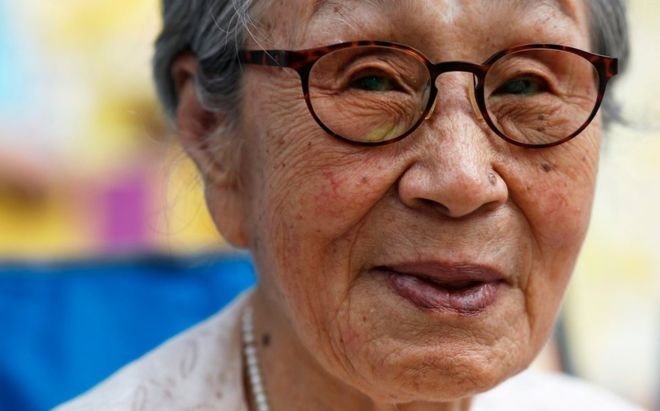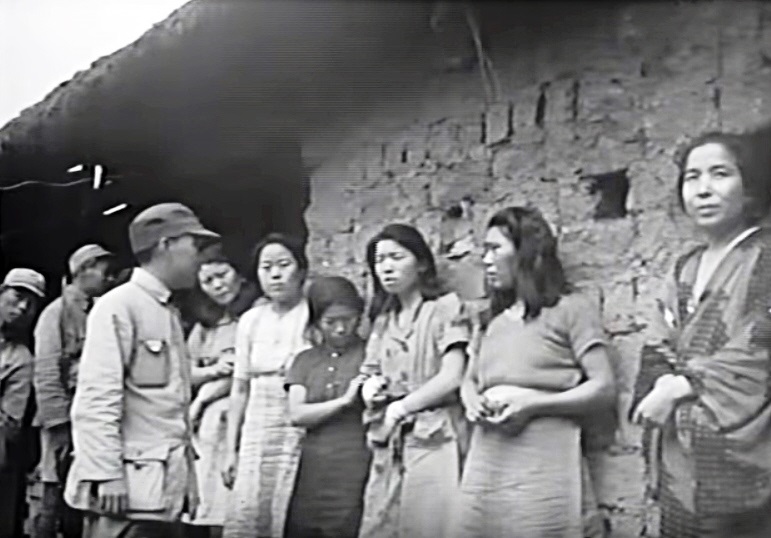G7 glosses over tariffs, pledges to cut global economic imbalances
Opinion: Soon the world will forget WWII Comfort Women – student contribution

South Korean campaigner Kim Bok-dong has died at the age of 92. File photo: Getty Images
The issue of Japan’s Comfort Women remains a point of international debate as one of its last survivors, Kim Bok-Dong, passed away on the 28th of January 2019, leaving behind a small handful of women who were the victims of sexual slavery before and during World War II. Kim was one of thousands of young girls from Asian countries including South Korea, China and the Philippines, who were forcefully taken in 1932 to Japanese military stations in Myanmar, Thailand, Vietnam, Taiwan, Singapore, Indonesia and East Timor. Her last memories recounted being physically assaulted and forced to have sex with countless men in one day.
The Comfort Women are still seeking reparations and many lobby groups have rallied behind them, saying that the Japanese Abe Shinzō Government has failed to bring closure on the matter. This ongoing issue has gathered momentum since 2014, reaching a point of public outcry when a memorial statue – erected in 2015 in Manila Bay – was taken down in April last year.
Comfort Women statues became a recent news topic after Japan’s Osaka city threatened in November 2018 that it would end its “sister city” ties with San Francisco over a statue depicting three comfort women from Korea, China and the Philippines. Soon thereafter, another statue was erected in San Pedro, Laguna in Thailand. The Japanese embassy in Manila reacted, saying that this was “extremely disappointing [and] not compatible with the Japanese government.”
The statue was removed two days later despite it being erected in a private property using private funds.
The issue further escalated when media were criticised from both sides with regards to their coverage on the topic. Lobby groups accused the press for giving into the pressure of right wing politicians and rewriting parts of Japan’s notorious history and to portray its actions in a more favourable light.

UN Rights Experts also weighed in on the matter, reprimanding Japan and requested that the country do more for the victims of wartime sexual slavery in order to provide full reparations. The Abe Administration stood their ground, maintaining that reparations have already been made through letters from successive prime ministers and a once-off payment of USD 8.3 million to carry out joint projects with South Korea in 2015. Ambassador Junichi Ihara emphasised that “both countries confirmed that the Comfort Women issue was resolved, finally and irreversibly.”
It is believed that none of the estimated 24 comfort women whom are still alive will continue to live beyond the next three years. Perhaps the Abe Administration, as well as the countries and lobby groups, would consider this an opportunity to set aside the international debate and allow these remaining women their freedom of speech. The politicisation of these women’s stories and forced silence about wartime slavery is not acceptable, threatening historical truth and moral integrity.
More statues should be established to commemorate the Comfort Women and to remind people that history should never repeat itself.
By Jae Young Kim
- Jae Young Kim, a Grade 10 student at the American International School of Mozambique, wrote this contribution as part of a personal project during her Middle Years Programme. In order to demonstrate her research, self-organisation and argumentative skills, Jae chose to investigate the matter of Japan’s “Comfort Women.” Jae specifically chose this topic to tell the story of the Comfort Women and raise awareness of their struggles.
Disclaimer: The views and opinions expressed in this article are strictly those of the author and do not reflect the views of Club of Mozambique.












Leave a Reply
Be the First to Comment!
You must be logged in to post a comment.
You must be logged in to post a comment.